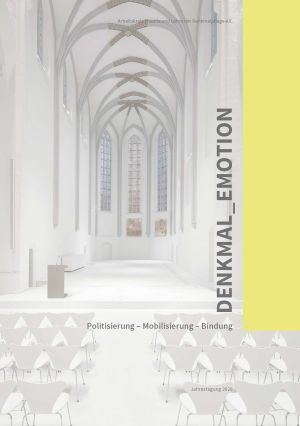Zitationsvorschlag
Veröffentlicht
Erbe und Emotionen
Zur überfälligen Re-Politisierung der Denkmalpflege
The ‘emotional turn’, which has meanwhile begun to make itself felt in the field of conservation, is closely associated with the re-politicization of questions of cultural heritage that is taking place in postcolonial research and Critical Heritage Studies. In many societies, questions of social enfranchisement and political self-determination are currently being articulated in terms of heritage questions and debates over monuments. An extended discussion of current heritage conflicts in the American city of New Orleans makes clear that these conflicts are not only a context for negotiating the value and meaning of objects; they also involve a larger questioning of the discriminatory narratives and racist structures that are evoked and confirmed by the monuments which now stand accused by activists. Movements such as “Take ‘em down NOLA” rightly locate questions of cultural heritage appropriation in the context of self-determination and participation, and use the battle-cry “Decolonize it!” to give expression to exclusionary and traumatizing imbalances of power as well as to combat many of the forms of heritage politics currently being practiced. Germany has a great deal of catching up to do in this area, both in terms of acknowledging the social significance of heritage conservation and in terms of conceptualizing and theorizing the emotional in this field. Hindering the effort is a persistent understanding of conservation as a ‘science’ entrusted to ‘experts’, whose role – at best – is to convey knowledge and values to various heritage communities, without necessarily engaging with the fundamental social (and emotional) condition of cultural heritage. It is an elitist and affirmative position that no longer seems appropriate to a plural and open society.








